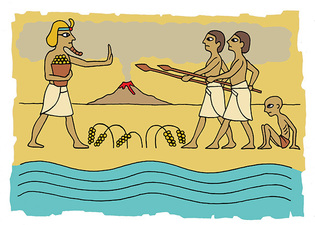 loading
loading
FindingsClimate change and the pharaohsVolcanoes messed with the ancient Egyptian weather—and politics.  Gregory NemecView full imageRapid climate change has happened before in human history. At least in one region, according to historians at Yale, it wreaked political havoc. Over and over again during Egypt’s Ptolemaic era (305–30 BCE), the African monsoons were interrupted. Faraway volcanic eruptions sent clouds of gases into the air that cooled the Earth enough to temporarily stop the seasonal rains—and with them the Nile’s annual flood, the sole source of water for Egyptian agriculture. The result was social stress, according to a study that appeared in the October 17 issue of Nature Communications.* The results, the authors say, show how human politics can be influenced by natural systems. “Mother Nature gets a serious say,” says lead author Joseph Manning, a professor of classics and history. The work started several years ago when Manning met coauthor Francis Ludlow, a climate historian, at a Yale Climate and History Initiative dinner. Ludlow, now at Trinity College Dublin, was just wrapping up a study of ice-core records that pinpointed volcanoes’ eruption dates with unprecedented accuracy. The team used more-recent records to establish that a volcanic explosion as far away as Iceland can affect evaporation, cut rainfall in Africa, and reduce the Nile flood. Then they looked at Ptolemaic papyri and records of the years following eruptions. The same things kept happening: popular uprisings; spikes in farmland sales; and extra decrees by priests to strengthen authorities’ weakened grip. Manning says that coupling precise paleoclimate records with historical records will be “revolutionary,” offering new insights into the influence of climate on human history. “Even if climate is 15 percent of the story, it’s part of a story which we can now begin to see.” _________________________ * In our print edition and in an earlier version of this online article, we neglected to report where the study appeared.
The comment period has expired.
|
|